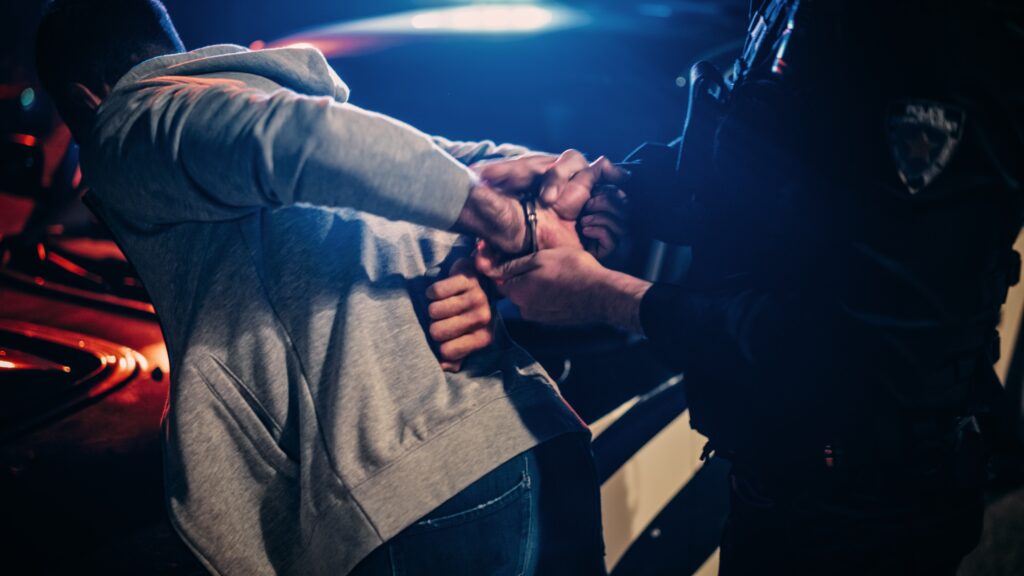When facing homicide charges in Florida, the stakes couldn't be higher. A homicide conviction can lead to life-altering penalties, including lengthy prison sentences, hefty fines, and a permanent mark on your record. If you or a loved one has been accused, securing a skilled homicide lawyer in Boca Raton immediately is paramount. At Mishali Law, we understand the complexities of these cases and are dedicated to providing a robust defense.
What Is Homicide?
In its broadest sense, homicide refers to the killing of one human being by another. However, not all killings are illegal. Florida law distinguishes between various degrees of homicide, each with specific elements that must be proven by the prosecution. Understanding these distinctions is crucial for developing an effective defense strategy.
It's important to note: Unlike some other criminal offenses, a homicide charge, regardless of its outcome, can never be expunged from your record in Florida. This underscores the critical need for an aggressive homicide defense lawyer.
Florida Homicide Statistics
Understanding Florida homicide statistics provides vital context to the gravity of these charges, though it's crucial to remember that every individual case is unique. The state, being one of the most populous in the U.S., consistently records a significant number of homicides annually, underscoring the serious nature of these offenses and the rigorous legal processes involved.
While real-time, up-to-the-minute data fluctuates, publicly available information from authoritative sources like the Florida Department of Health (FLHealthCHARTS) and the CDC offers valuable insights. For example:
- Overall Homicide Count: In 2023, Florida reported approximately 2,414 murder offenses statewide, with a rate of 10.6 per 100,000 population. Looking at broader "homicide" deaths (which can include justifiable homicides and other classifications), Florida recorded around 1,336 deaths due to homicide in 2023, with an age-adjusted rate of 6.4 per 100,000 population.
- Recent Trends: Over the past few years, the number of homicides in Florida has seen fluctuations. For instance, in 2022, there were roughly 2,329 murder offenses, and in 2021, around 2,240, according to FLHealthCHARTS. The CDC data for total homicides shows around 1,473 deaths in Florida in 2022.
- Impact of Firearms: A significant portion of homicides in Florida involve firearms. In 2022, there were approximately 1,170 gun homicides in Florida. Statistical analysis also reveals disparities, with males being significantly more likely to die by gun homicide than females, and Black individuals experiencing a disproportionately higher rate of gun homicide deaths compared to their white counterparts.
- Local Variations: While statewide numbers provide a general picture, homicide statistics can vary considerably by county. For example, in 2023, counties like Miami-Dade, Duval, and Hillsborough often show higher absolute numbers due to their larger populations, while some smaller counties might exhibit higher rates per capita in specific years.
These statistics are not just numbers; they represent lives lost and futures irrevocably altered for both victims and those accused. They reinforce why an immediate and aggressive defense by an experienced homicide lawyer is indispensable when facing homicide charges in Florida. The severity of these numbers highlights the prosecution's often zealous approach, making skilled criminal defense the most crucial factor in navigating such a challenging situation.
Homicide Charges You May Face in Florida
Florida law categorizes unlawful killings into several types, each with varying degrees of severity and potential penalties. A knowledgeable homicide attorney will understand the nuances of each and how to defend against them.
First Degree Murder
This is the most severe homicide charge in Florida. First degree murder is defined as a premeditated killing, meaning the act was planned or deliberately intended. It also includes killings that occur during the commission of certain violent crimes or felonies, such as burglary, sexual battery, robbery, arson, or kidnapping (known as felony murder). A first degree murder conviction can lead to the death penalty or life in prison without the possibility of parole.
Second Degree Murder
Florida's criminal code defines second degree murder as a killing that results from a dangerous act demonstrating a "depraved mind without regard for human life." This means the perpetrator acted with extreme recklessness, knowing their actions would likely cause death or great bodily harm. It also encompasses killings that occur during the commission of certain felonies, even if the defendant was an accomplice and not the direct perpetrator of the killing. This is a felony-level murder.
Third Degree Murder
This homicide charge applies when a killing occurs during the commission of a non-violent felony, such as drug trafficking or certain types of fraud, and without any intent to kill. Third degree murder carries a maximum sentence of 15 years in state prison, 15 years of probation, and a $10,000 fine.
Manslaughter
Manslaughter is a killing that occurs without premeditation and without the malice aforethought required for murder charges. It typically involves:
- Manslaughter by Act: An intentional act that leads to death, but without intent to kill.
- Manslaughter by Procurement: Causing the death of another through encouraging or inducing them to commit an act that results in death.
- Manslaughter by Culpable Negligence: Causing death through gross and flagrant reckless disregard for human life.
If a weapon or firearm is used in the commission of manslaughter, it is considered a felony and can significantly increase the manslaughter sentence. Penalties can include a prison sentence of up to 30 years, probation for up to 30 years, and a $10,000 fine.
Vehicular Homicide
Vehicular homicide specifically addresses causing the death of another person through the reckless operation of a motor vehicle. This is defined as driving with a willful or wanton disregard for the safety of persons or property, which has the potential to cause death or great bodily harm. The penalties for vehicular homicide can include a prison sentence of up to 15 years, 15 years of probation, and up to $10,000 in fines.
It's important to understand that failing to provide information or render aid at the scene of a vehicular homicide can escalate the penalties. Furthermore, vehicular homicide and DUI charges are separate offenses, meaning you could face both if applicable.
Penalties for Homicide in Florida
The penalty for murder and other homicide charges in Florida are among the most severe in the legal system. Beyond the lengthy prison sentences and significant fines outlined above, a homicide conviction carries a multitude of other consequences:
- Loss of Rights: This includes losing the right to vote, own firearms, and potentially hold certain professional licenses.
- Social Stigma: A permanent criminal record that can impact future employment, housing, and personal relationships.
- Immigration Consequences: For non-citizens, a homicide conviction can lead to deportation.
- Financial Burden: Fines, court costs, and restitution to victims can create a substantial financial strain.
What a Homicide Conviction Could Mean for Your Future
A homicide conviction is not just about prison time; it's about the complete restructuring of your life. The consequences often extend far beyond your release from incarceration. Employment opportunities become scarce, housing can be difficult to secure, and the societal perception of a convicted felon can be a lifelong burden. This is why having an aggressive homicide defense attorney fighting for your rights is absolutely essential from the moment you are accused.
How a Homicide Defense Lawyer Can Help You
At Mishali Law, our homicide defense lawyers have a wide range of defense strategies tailored to the unique circumstances of your case. We are prepared to meticulously examine every piece of evidence, challenge the prosecution's claims, and build the strongest possible defense to help reduce or dismiss your homicide charges altogether.
Our defense strategies may include:
- Self-Defense: Arguing that the actions were necessary to protect oneself or others from imminent harm.
- Mistaken Identity: Presenting evidence that you were not the perpetrator of the crime.
- Insufficient Evidence: Demonstrating that the prosecution lacks enough evidence to prove guilt beyond a reasonable doubt.
- Violation of Constitutional Rights: Challenging illegally obtained evidence or procedural errors.
- Alibi: Providing proof that you were elsewhere at the time of the incident.
- Accident: Arguing that the death was a tragic accident, not an intentional or reckless act.
- Plea Bargaining: In some cases, negotiating with the prosecution for a reduced charge or sentence when appropriate and in the client's best interest.
We will conduct an independent investigation, interview witnesses, analyze forensic evidence, and work tirelessly to protect your freedom and future.
Get Trusted Legal Help From a Boca Raton Homicide Attorney
If you are facing homicide charges in Boca Raton or anywhere in Florida, do not delay. The sooner you contact an experienced homicide lawyer, the more opportunities we will have to build a strong defense. Your future hangs in the balance.
Contact Mishali Law today for a confidential consultation. Let us put our experience to work for you.






